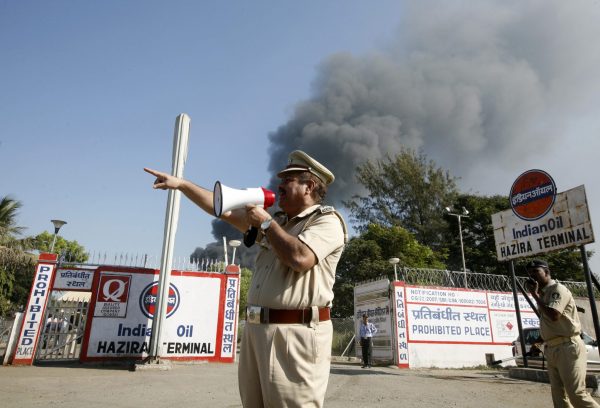Financial crises are regular and serious, and they have devastating economic and social effects. It is hard to reform, given that change affects vested interests and can be hard to explain politically. And it is hard to prevent crises, given the structural vulnerabilities and trigger events that lead to a collapse of confidence vary in each case. Much of the focus of reform is on how to improve the resilience of financial systems and economies, particularly on market design, risk management, regulation and supervision, and the adequacy and effectiveness of safety nets.
The world – and the Asia-Pacific region maybe more than other regions – is vulnerable to spillovers from events like trade and currency wars, military conflicts and security posturing getting out of hand. Government and bank debt exposure can also undermine public and market confidence in financial systems in big economies. In a world of changing strategic balance and nationalism, these events are all too possible.
Addressing the sources of financial risk is right. But it is useful to complement work on financial resilience with a broader reflection—and action agenda—on the strength of economic and social institutions and frameworks across countries. These institutions and frameworks tell us something about the resilience of an economy and society as a whole to shocks and how shocks are transmitted and affect a country.
There are many indicators of a country’s institutional health, but a good proxy to start with is Transparency International’s index of perception of corruption in the public sector. Across Asian and Pacific economies, there is still a wide spread in the quality of transparency around lobbying, political finances, government spending and public institutions. The top end is consistently dominated by New Zealand (89 out of 100 in 2017) and Singapore (84), followed closely by Australia and Hong Kong (77), the United States (75) and Japan (73), Taiwan (63) and South Korea (54) in the middle of the pack, followed by Malaysia (47), China (41), India (40), Timor Leste (38), Indonesia and Thailand (37), Vietnam (35), the Philippines (34) and Papua New Guinea (29), with North Korea (17) at the bottom.
Some low- to middle-income economies have significantly improved their rating in the past five years: 9 points up in North Korea from (8/100), 5 points up in Indonesia and Timor Leste, and 4 points up in Papua New Guinea and Vietnam. People’s trust in government in Malaysia and South Korea, as measured by the Edelman Trust Barometer, improved in 2018 from 37 per cent of people surveyed in 2017 to 46 per cent in 2018 in Malaysia and 28 to 45 per cent in South Korea. This may suggest further improvement in public sector transparency is to come in those countries. The only country in the region with a big fall in the perceived quality of its public institutions since 2012 was Australia, down 8 points, although Singapore’s high rating eased back slightly by 3 points.
Action to build resilience always starts at home. Consistently looking to improve governance of domestic public and private institutions, the integrity of market processes and regulation, and lifting competition is a no-brainer. Small steps are fine; incremental improvements in openness about how decisions are made is better than none when there is still a lot of room to improve. These deserve as much policy and public focus as strengthening the financial system itself.
There is a clear case, for example, for a national body in each country to protect integrity in public-sector decision-making, full transparency and rules in public grants. The same is true for proactive regulation of markets to ensure that all those markets are competitive and deliver for consumers—which is the whole rationale for markets in the first place. These steps would facilitate greater public trust and confidence in the decisions made by ministers, officials and businesses, and build resilience across the economy.
In a world of shifting geopolitical power, rising nationalism and stressed global frameworks and institutions, it is also the right time to lift and energise cooperation with other countries in the region and beyond wherever an opportunity to do so can be found.
In addition to strengthening domestic institutions and frameworks, the better response to global uncertainty is to build and strengthen relationships and strategically and pragmatically engage with other countries in areas of mutual interest. Building a coalition of economies in APEC, for example, to work together in areas like facilitating and retaining foreign investment, strengthening competition in domestic markets, improving decision-making and management in infrastructure, can help build trust, lift capacity and improve economic and social outcomes in all economies. This complements work on regional and global crisis financing. In key groupings like ASEAN, APEC and the East Asian Summit, the Asia-Pacific region has a solid and broad-based apparatus to build up its resilience and improve outcomes for its people. The opportunity is there to take.
Gordon de Brouwer is Honorary Professor in the Crawford School of Public Policy at the Australian National University and was formerly Secretary of Australia’s Department of the Environment and Energy and previously Australia’s G20 Sherpa.
This article appeared in the most recent edition of East Asia Forum Quarterly, ‘Asian crisis, ready or not ’.

